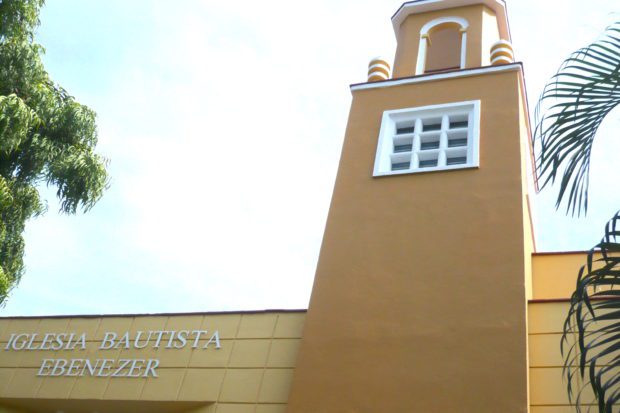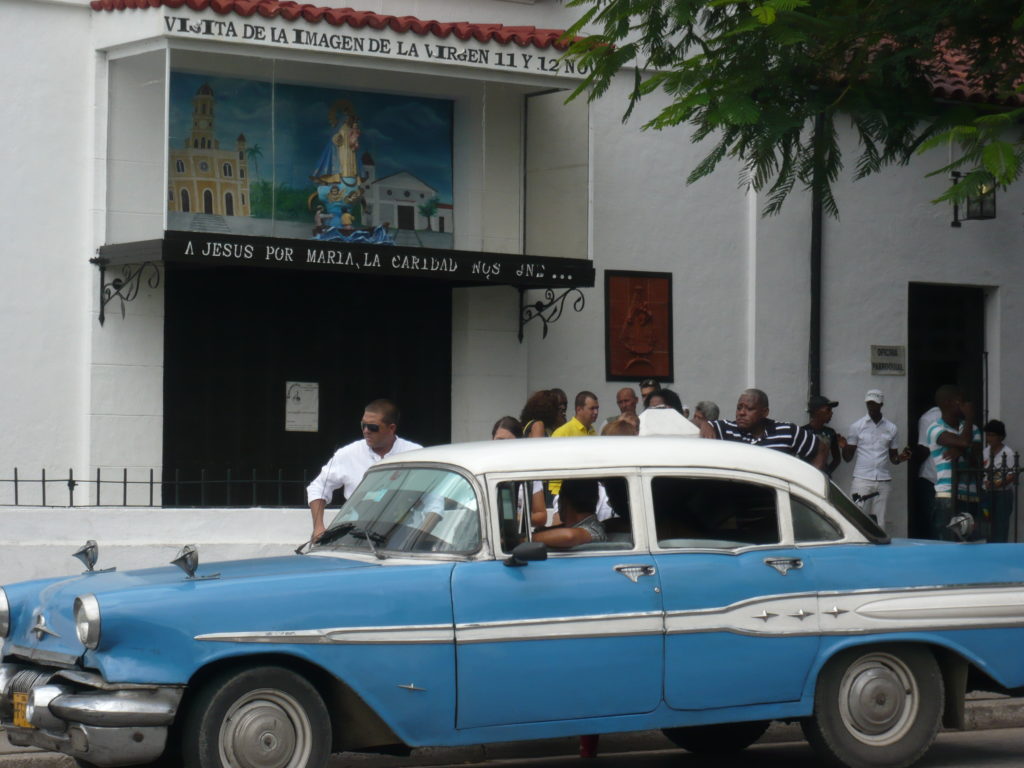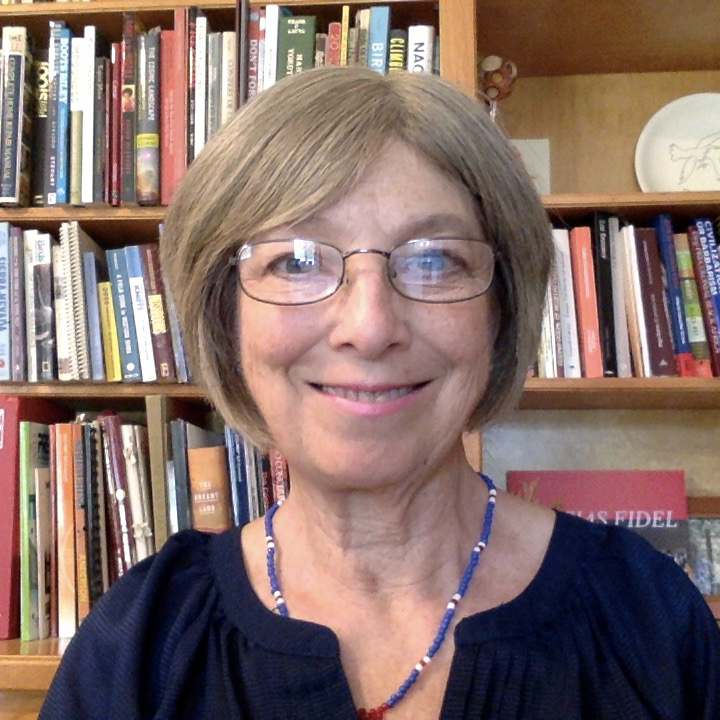

On Dec. 2, U.S. Secretary of State Antony Blinken issued a declaration designating Cuba, among other countries, as a “Country of Particular Concern” for “having engaged in or tolerated particularly severe violations of religious freedom.”
Countries included on the list are subject to possible sanctions, including cancellation of scientific and cultural interchanges, suspension of aid for development, blocking of loans and restrictions on exports.
Oddly enough, no evidence is offered for this statement. It seems to be enough that the United States postures self-righteously; facts are irrelevant “because we say so; no proof required.”
The Cuban Constitution recognizes, respects and guarantees religious freedom and provides sanctions for any form of discrimination against believers—or non-believers.
It’s particularly ironic that this should come in a year in which Cuba engaged in a profoundly democratic process of popular consultation to establish a new Code of Family Law consistent with the Constitution of 2019, with a nationwide referendum in September to determine whether the Families Code would be adopted.

Fundamentalist churches throughout Cuba campaigned openly and vehemently against the Families Code, just as they had campaigned against adoption of the Constitution, and for similar reasons. Leaders and members of these churches refuse to recognize any rights of all people, especially regarding marriage, that do not conform to their homophobic and patriarchal beliefs.
The Families Code was adopted by a 67% yes vote; about 33% of Cubans voted no. (The Constitution, also submitted to referendum, was adopted by a 87% yes vote; about 9% of Cubans voted no.) What happened to those who voted no? What happened to those who led campaigns against the Families Law Code or the Constitution? Absolutely nothing.
Some readers might know that the author has spent much time in Cuba. Even leaving aside the Caravans with Pastors for Peace, which visit all kinds of churches at various times and places in Cuba, the author has noticed that the presence of churches and religions is widespread, almost ubiquitous.
When in Havana, the author stays at the home of Nora Cuello in Marianao. It’s next door to a Baptist church. There’s a Jehovah’s Witness congregation just down the block. The apartments facing the next street, back to back with the house, have not one but three babalawo—leaders in the African-based religion of Regla de Ocha. Sunday mornings are not quiet, with Protestant hymns, drumming and singing in Yoruba religious style, and more.
If you need a Catholic church, the closest one is just around the corner and down one block, one of more than 650 on the island. There are three Jewish synagogues in the Vedado District alone. There is a mosque in Old Havana. The Asociación Yoruba building is right across from the Capitolio.
There are Baptists, Pentecostals, Seventh-Day Adventists, Presbyterians, Anglicans, Methodists, Religious Society of Friends (Quakers), Lutherans and the Salvation Army. There are thriving African-based religions including Regla de Ocha (Santería), Palo Monte and Sociedad Abakua, which have great influence in Cuba.

Hey Mr. Blinken: Three different Catholic popes have visited Revolutionary Cuba, and each of them condemned the U.S. blockade of Cuba.
Secretary of State Blinken—who are you trying to fool? For sure not the people of Cuba.
Here’s Cuello’s perspective: “My opinion is simple, and it is that I live here, and I can tell you that I have the Ebenezer Church on one side and another church on the other; in back there are three babalawo, on the first floor there’s a man who has an Adventist Center, and the Catholic churches nearby, and they all carry out their religious activities and rites whenever they wish and nobody messes with them.
“Everyone is free to practice and promote or preach their religion. I don’t know where they got that idea, because here everybody has their services and their rites without being bothered by anyone. There are lots of religions. There are those who practice them, others who don’t, everyone according to their own preference.”
Raúl Suarez Ramos, long-time pastor of the Iglesia Bautista Ebenezer and elected representative to the Asamblea de Poder Popular, Cuba’s parliament, says that “today I feel whole, able to love God, carry out my pastoral duties, live my faith, and at the same time feel committed to the humanism of the Revolution, as an indivisible experience, without any contradiction.”
Izett Samá studied at the Protestant Ecumenical Theological Seminary in Matanzas; she is now pastor of the Iglesia Presbiteriana in Los Palos in Mayabeque.
“My work now is in a community in the countryside,” Samá wrote. “We have a very active church with a lot of social projects to help people in many ways. Our country now has a difficult economic situation, and we try to help the people know how we can make changes in our community by ourselves.
“From the Christian faith that inspires us, the revolutionary calling that moves us and complete conviction, we affirm that peace is the way through which we must restore justice and well-being in this world.”
“If it weren’t so serious, it would be laughable,” says M. Lopez, “because Cuba is a country where all religions coexist freely. Really, they don’t know what to do next to accuse Cuba of something.”
According to Alberto Garcia, “The United States is always ‘concerned’ about what is occurring, according to their judgment, in all countries that don’t submit to their rule. And they include them in lists according to their arbitrary political convenience.
“If we were going to include the U.S. Empire in some lists for their ominous acts, the lists would be infinite. They would be first on the list of Violators of Human Rights, Invaders of Countries, Sponsors of Coups d’Etat, Largest per Capita Prison Population, Most Heavily Armed, Largest Producer of Armaments, Largest Number of Military Bases in Other Countries, Only Country to Use the Atomic Bomb, etc., etc.”
And here’s Blinken again, presumably speaking in our name, “Around the world, governments and non-state actors harass, threaten, jail and even kill individuals on account of their beliefs. These actions sow division, undermine economic security and threaten political stability and peace. The United States will not stand by in the face of these abuses.”
Israel, which is recognized as an oppressive apartheid state on the basis of religion by human rights organizations, and which has this year killed the highest number of Palestinians in the West Bank in more than 15 years, according to the United Nations, is not on this State Department list.
And, of course, the United States still supports and arms Saudi Arabia, which is on the list, but which somehow merits a pass. Apparently, the United States will stand by in the face of these abuses if the price is right.
By the way, although Blinken is not the prime mover of U.S. policy, it is noteworthy that his company, WestExec Advisors, has contracts with Israeli maritime surveillance company Windward and U.S. drone manufacturer Shield AI.
To the U.S. State Department and to those who promote an economic, cultural and media war against Cuba, we say that it’s time to stop resorting to dishonest accusations to maintain and justify a policy of abuse of the Cuban people.

